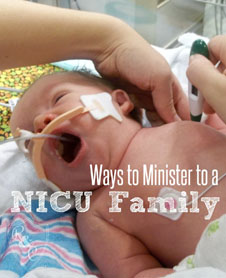
Raising Gender Healthy Kids
Emotionally healthy children who grow up to be emotionally healthy adults are comfortable in their own skin, in the gender God chose for them. These days, when a child shows non-stereotypical gender behavior, people start to freak out, afraid that their child is actually the opposite sex on the inside.
Good news! There are things parents can do to raise gender healthy kids, girls who are content to be girls and boys who are glad to be boys. Without resorting to artificial stereotypes, either.
First, loosen up your expectations of what boys and girls should be like. A friend of mine now in college was recently exasperated when the instructor taught that “Little girls play with dolls and wear dresses.” Carol shot back, “I was NEVER like that!” My friend preferred to climb trees and ride her skateboard, and absolutely hated it when her grandmother tried to teach her to make gravy because “that’s what girls do.” And it really irritated her that her brothers never had to do any kitchen work because “boys don’t do that sort of thing.” Narrow gender stereotypes don’t honor the creativity of the God who makes varieties of girls and boys on a femininity spectrum and a masculinity spectrum (my blog post on the Gender Spectrum has been helpful to a lot of people; please read it!).
When parents can relax about the kind of boy or the kind of girl they have, it is easier to support and encourage children according to the way God designed them. Some boys are not the rough-and-tumble, athletic type; they are born emotionally sensitive, more relational than most boys, often creative and artistic. I know one little boy who pretty much danced out of the womb, and has been dancing ever since. That’s his gift, his divine design. His family loves it, loves him, and supports him fully. Some girls just aren’t the girly-girl type; they are natural athletes and gravitate toward more classically masculine interests, but God intended them to be more of the tomboy feminine. Like my friend Carol.
Second, cultivate warm, affectionate, respectful relationships in your family–between husband and wife, between mom and children, and between dad and children. Emotionally healthy, gender healthy kids are grounded in the security of parents who love each other and their children. A hurtful relationship with the same-sex parent is the biggest contributing factor to a later development of homosexuality, but there are other forms of brokenness that can also arise from hurtful family relationships.
Third, appreciate the different contributions from mothers and fathers. God created the complementarity of male and female (Gen. 1:27) for our good and for His glory. Moms and dads are not interchangeable, which is why He intended for families to be led by a mother and a father.
Here are some suggestions from Ricky Chelette, my esteemed colleague at Living Hope Ministries, who has been helping parents deal with gender issues for decades, my friend Anne Paulk, author of Restoring Sexual Identity . . . and from me:
Fathers and Sons
• Strongly connect with your son at an early age.
• Affirm the son’s identity as a boy.
• Take interest in him and his interest(s). Be his #1 fan.
• Demonstrate love by word and deed. He needs to hear you say “I love you, son.”
• Love his mother and assure her security and safety.
• Powerful affirmation: “You’re good enough, you’re strong enough, and you have what it takes.”
• Always give affirmation, attention, and affection (The “Three As”)
• Don’t feel rejected by the mother/child relationship.
• Draw out your son (“Hey, let’s be guys together!”).
• Show him what maleness is.
• Do things together. Even a trip to the grocery store or Home Depot counts.
• Cultivate a habit of “thumbs-up” attitude of affirmation. Look for things to affirm.
• When he doesn’t get it right, don’t dismiss him and send him to Mom.
• Encourage and affirm “be-like-Dad” behavior.
• Be physical. Boys need safe male touch.
• When giving hugs, let kids (both boys and girls) pull away first.
Mothers and Sons
• Push your son towards his father and encourage their relationship.
• Affirm your son’s masculinity.
• Point out the differences between you and him, between him and his sisters, etc.
• Allow for emotional distance and independence. Don’t try to keep him bound to you like a baby.
• Demonstrate positive, safe touch with him (not just spankings).
• Love and respect his father.
• Bring other boys into the home and encourage connections with other boys.
• Reinforce the father’s role.
• Tell him that being a boy is wonderful, and you’re glad God made him a boy!
• Build up the similarities to his daddy.
• Refuse to diminish the glory of the father/son relationship; don’t get in the middle of it.
• Affirm what is valuable in your son’s father so your son can model it.
• Nurture and comfort with empathy, but allow your husband to nurture differently (aggression nurturing), such as “Hop up, you’re OK.” Boys need to learn to develop a thicker skin from their dads.
• Don’t insist that he look you in the eyes when you’re having a difficult conversation (except when it’s time to apologize). It’s especially threatening and painful for most boys. Take a walk or drive with him where you are shoulder to shoulder, or talk to him in dim lighting (such as bedtime), to encourage him to open up to you.
Fathers and Daughters
• Love and build up your wife, and make sure she feels secure and safe.
• Affirm your daughter’s femininity with words and deeds.
• Be your daughter’s “protector.”
• Tell her she is loved and beautiful 3X more than you think is necessary.
• Love and serve her. Set the bar high for the man she will marry.
• Girls are tactile. Touch is the key to your daughter’s heart. Appropriate touch is SO powerful and necessary.
• Girls are verbal, so words are also very powerful. They need to hear words of affirmation more often than boys.
Mothers and Daughters
• Respect and honor your husband.
• Affirm your daughter’s femininity.
• Show her what strength and nurture together look like.
• Love your daughter, don’t compete with her.
• Do girly things together early and often. She needs to learn to be a girl from you.
• Communicate feelings, not weakness.
• Continually develop and demonstrate a healthy relationship /romance with your husband.
• Be confident so she can admire you.
• Stand up for what is right in godly femininity, in the family and in the world.
• Demonstrate biblical femininity: relational, nurturing, vulnerable, responsive, and beauty (for an excellent article on this, read A Real Woman: Defining Biblical Femininity on the Living Hope website.)
• Pursue contentment; enjoy life where you are right now.
• Model Christlike submission to God, husband, authorities.
And finally: pray, pray, pray for your children!
This post was originally published on July 28, 2015.




3 Comments
Anonymous
It is unlikely that gender
It is unlikely that gender confusion would occur wher ther is healthy relationship atmostsphere and the family is christian. I do believe that, jsut as physical diseases are consequences of the original sin, emotional and mental diseases originate from that source. When Paul mentions homosexuality it was not as a commandment but as an aspect of the fallenness/depravity of humans and as a giving up by God on a people who relish their sinful lives. When God gives up He allows the deceitfulness of sin, all sin of whic homosexuality is on, to run loose without restrictions.
For the christian such deceiving spirits are not common.
Emily Jones
one-sided respect/honor is NOT healthy nor Biblical
you have alot of good themes here but laced wihtin your parenting of boys and girls is a familiar trap evangelicals fall into of advocating a lopsided, one-sided respect/honor of wives to husbands, e.g. where you encourage mothers to "Respect and honor your husband"and "Model Christlike submission to God, husband, authorities" to role model for their daughters what healthy womanhood looks like. No where do you encourage men to respect and honor their wives nor to model this for their sons. This asymmetrical gender role mindset does not breed a healthy atmosphere of relational mutuality in the family which frees everyoe to truly be themselvees but rather an unhealthy male presumption to power and grandiosity which may studies show to breed conditions which can lead to abuse and unhealth. Furthermore, nothing in this blog post describes how to be empowering to girls to breed in them a confidence to discern what is their unique calling in the world and to go out there and chart their course in the world. Girls have any facets to their personalities and their God-given callings in the world, as do boys, and they are created in God's image for shared "dominion" in the world. Please open your mind and heart to look for this deeper message wihtin Scripture and in the beauty and uniqueness of all of us as male and female made in God's image.
Sue Bohlin
Not exhaustive
My blog post was never meant to be an exhaustive treatment of familial relationships.
Nonetheless, consider the apparent one-sidedness of Ephesians 5:33 where wives are commanded to respect their husbands, and husbands are commanded to love their wives. From this one verse, should we assume that husbands get a pass on respecting their wives and wives get a pass on loving their husbands? I'm sure you would say no. One verse does not expound on everything the Bible says–and neither does a blog post.
But I have a book in progress on this topic, to which your suggestions would make an excellent fuller treatment of the issue, so thank you for sharing.